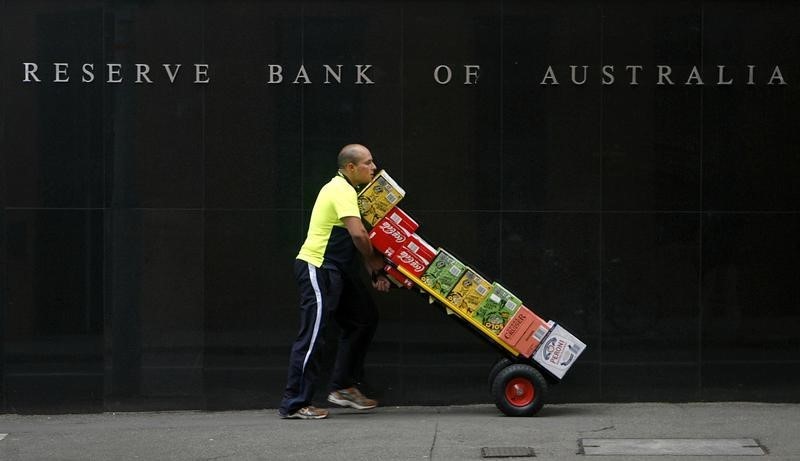By Paulina Duran and Swati Pandey
SYDNEY (Reuters) - Australian banks are well capitalized to withstand the disruption caused to financial markets from the coronavirus outbreak, a senior central banker said on Wednesday as the country's banks met with the Treasurer.
Reserve Bank of Australia (RBA) Deputy Governor Guy Debelle said the country's lenders had boosted their finances before the recent disruption in wholesale funding markets and their deposit inflows were "robust" as well.
"They are resilient to a period of market disruption," Debelle said in a speech in Sydney.
The comment comes amid fears Australia is on track for its first recession in nearly three decades. Regulators are worried the coronavirus epidemic, which has plunged major stock indexes into bear territory and disrupted money markets, could have a ripple effect across the financial system.
A sharp and rapid fall in stock markets and widening credit spreads would put indebted firms under severe pressure, in turn leading to potential defaults and a rise in bad loans for banks.
Treasurer Josh Frydenberg did not immediately provide details of his meeting with the chief executives of 13 of the country's biggest banks.
Shares in the Big Four banks -- Commonwealth Bank (AX:CBA), Westpac (AX:WBC), National Australia Bank (AX:NAB) and ANZ Banking Group (AX:ANZ) -- have dived between 15% and 22% since the beginning of February when the virus began spreading outside China. But regulators and the banks themselves are confident the sector is prepared for a shock after lenders bolstered their core tier-I capital ratios to a minimum 10.5% from January.
Australian Banking Association CEO Anna Bligh said the country's lenders were in "the best ever shape to face this challenge."
Debelle said the RBA has not seen "any particular sign" of pressure in its daily market operations to date.
In addition, Debelle noted that while the spread between the bank bill swap rate - a benchmark used to price loans and other products - and the expected policy rate has risen in recent days, it remains low.
"Nothing at all like what occurred in GFC," Debelle said, referring to the 2008 global financial crisis.
The coronavirus has spread rapidly in recent weeks, infecting more than 116,100 people worldwide and killing more than 4,000, according to a Reuters tally.
The RBA last week cut its benchmark rate to a record low 0.5%. Financial futures are pricing in another easing to 0.25% as soon as next month, another factor pressuring bank earnings and profit margins.
